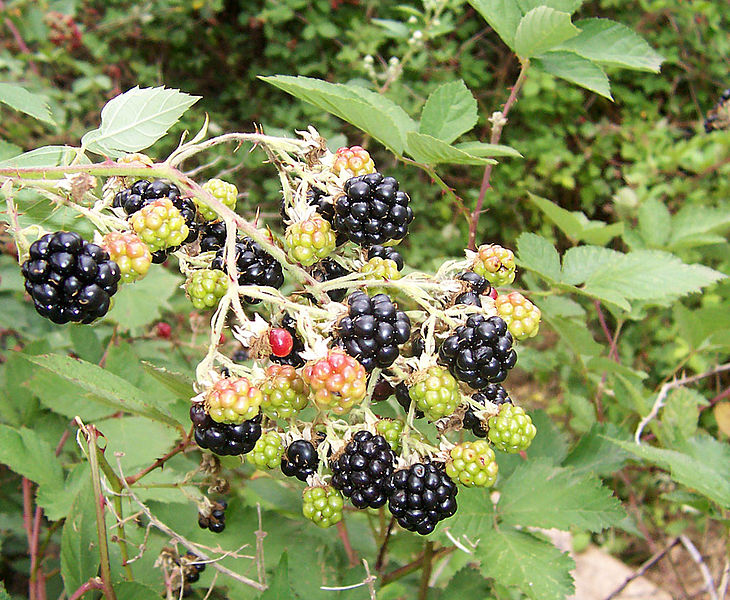
(Wikimedia Commons)
…. or alternatively, A is for ‘attachment’, B is for ‘blog’ and C is for ‘chatroom’.
Somehow, back in January, I missed the fuss that surrounded the publication of the updated edition of the Oxford Junior Dictionary. I caught up with it today, when reading an absorbing article in today’s Guardian by landscape and natural world enthusiast Robert Macfarlane. This is what he said.
‘The same summer I was on Lewis, a new edition of the Oxford Junior Dictionary was published. A sharp-eyed reader noticed that there had been a culling of words concerning nature. Under pressure, Oxford University Press revealed a list of the entries it no longer felt to be relevant to a modern-day childhood. The deletions included acorn, adder, ash, beech, bluebell, buttercup, catkin, conker, cowslip, cygnet, dandelion, fern, hazel, heather, heron, ivy, kingfisher, lark,mistletoe, nectar, newt, otter, pasture and willow. The words taking their places in the new edition included attachment, block-graph, blog, broadband, bullet-point, celebrity, chatroom, committee, cut-and-paste, MP3 player and voice-mail. ………I was dismayed by the language that had fallen (been pushed) from the dictionary. For blackberry, read Blackberry.’
I too was dismayed. Everywhere there is evidence that children are playing out far less than they used to, seeing green space less often than their parents did. Perhaps more than ever they need a dictionary to help them know about chestnuts and clover. Since the Second World War, there have been regular complaints from teachers and others, that there are city children who don’t know that milk comes from cows, or potatoes from the earth, or that blackberries are for gathering and devouring. Best not cut them out of works of reference too.
But then, I’m not sure how many children use dictionaries either. I’ve seen lots of young people, including our own daughter, who will turn to an online source rather than the dictionary when needing to check a spelling or a meaning. But really, what can be more fun than turning to a dictionary to look something up, and then becoming distracted, for more than 20 minutes at a time, by reading about words you never knew, or knew you needed to know, like ‘pursier’, or ‘grager’, or ‘chip breaker’ or ‘squaloid’?
All the same, I’m glad and relieved that my grandchildren know the meanings of all the words Macfarlane singles out, both the new edition inclusions, and the ousted ones from, apparently, a bygone age.

(Wikimedia Commons)
Unbelievable. Most of my young grandchildren, the 4 and 5 year olds, understand most of those words and could apply them to the appropriate object. I’m not sure they or I could understand all of the replacements.
LikeLiked by 1 person
Quite. I wonder if the next edition will put matters right. There seems to have been quite a backlash.
LikeLike
I agree – but I believe it’s a generational lament….’when I was your age…’ And so on, each generation has a slightly different experience growing up, my dad had it much more difficult than I did, which is why he worked so hard, so I wouldn’t have to, but he never cut me a break. I see my own kids – 17 and 12 – more involved in media and technology and less in nature than I was. But media and technology when I was their age (end of the 70s) was much different – I was more interested in cars and music than my son is…but those words should never be removed from our vocabulary, ever.
LikeLike
Oh, I know the lament that things are going to the dogs was going on way back with the Ancient Greeks. I don’t mind the new vocabulary. I just lament the apparent death of the old. Though I don’t believe it’s dying….yet, any more than I believe that catkins are dying out.
LikeLike
Really interesting post. I’m a huge fan of Macfarlane and am thrilled he has a new book coming out next week.
LikeLike
So am I. Did you read the Guardian article I linked to? It’s quite fascinating.
LikeLike
Going to settle down and read it this evening!
LikeLike
Fascinating post – thank you. I embrace change in language, it has to move on (even if I don’t understand all of it) but am with you Margaret, we can’t lose words that still have meaning. I may be jargogled by some modern phrases but I still have to pull up the dandelions!
LikeLike
My goodness, Sharon. I’m off for the dictionary forthwith to look up ‘jargogled’ 😉
LikeLike
Well, that’s me told. It wasn’t in our 2 volume Webster, and I had to turn to the net after all. Is this where you found it? http://matadornetwork.com/abroad/20-obsolete-english-words-that-should-make-a-comeback/
LikeLike
It was my mother in law’s – also very fond of discombobulate!
LikeLiked by 1 person
Me too!
LikeLike
This is so interesting! I can see removing truly archaic words but why would they take out words like dandelion?! I wonder if they are trying to stick to very strict page limits for the published dictionary and need to take one word out for every one added. But, really, dandelion?!
LikeLike
Quite. And do American children play conkers every autumn, sorry, fall? Perhaps not, but they’ll have other equally important pursuits. Here’s something about conkers. http://resources.woodlands-junior.kent.sch.uk/customs/conkers.html
LikeLike
No, you’re right–I had to look conkers up! We have trees here that we call horse chestnuts but I don’t even know if they really are the same as yours. And I’m pretty sure no American kids play the game.
LikeLike
Yup, the non-edible chestnuts are conkers. You could start a trend!
LikeLike
It felt like we were left to our own devises more in the ‘old days’ and so we discovered the actual flora and fauna around us. It may be sad but maybe kids just don’t need these words anymore. What I don’t understand about dictionaries though is why they would remove words and not just add new ones. Interesting post.
LikeLike
Well, I do understand that for every 12 words that go in, a dozen have to come out. But bluebells et al? Surely not.
LikeLike
Is it wrong to make the assumption that the person(s) responsible for the deletion of those lovely words has spent little time in nature? Thank you for Macfarlane’s article which I otherwise would never have read. It is an experience in itself … just beautiful … and so thought-provoking and informative. (On a baser level, I wonder now if Words With Friends will accept “zwer”? I’ll give it a go!) Bravo for this outstanding post!
LikeLike
Oh, thank you. Yes, I can’t imagine the meeting in which whey-faced library-bound souls decided that ‘bluebells’ were so last century. I’m so glad you like Macfarlane too.
LikeLike
Acorn, dandelion, ivy? Such beautiful words… replaced by..? Agh.
LikeLike
Yes, but we users don’t have to replace them!
LikeLike